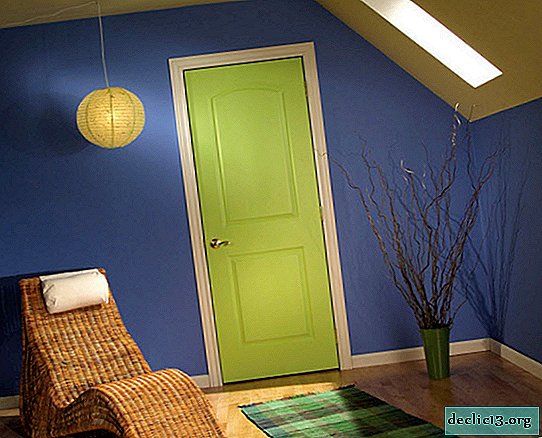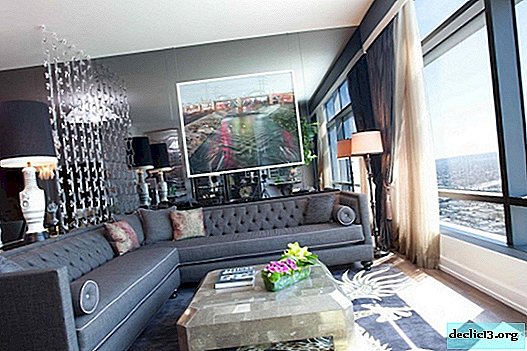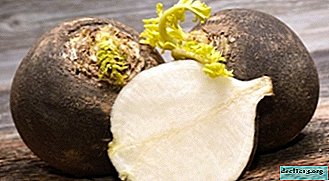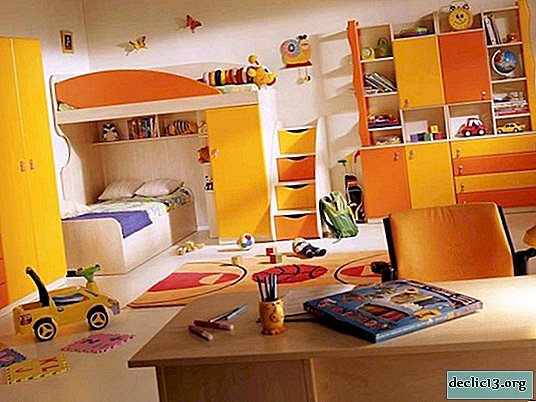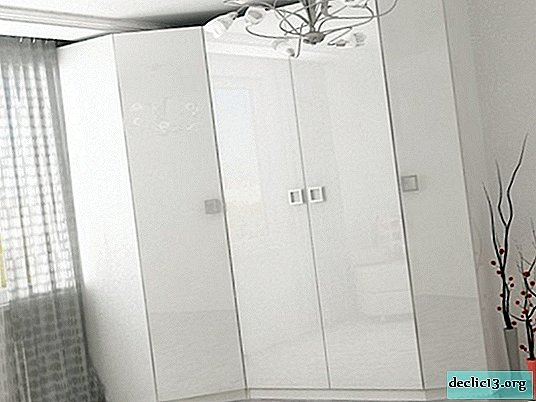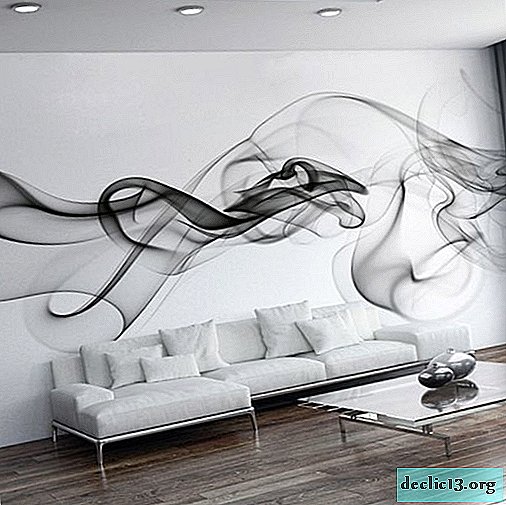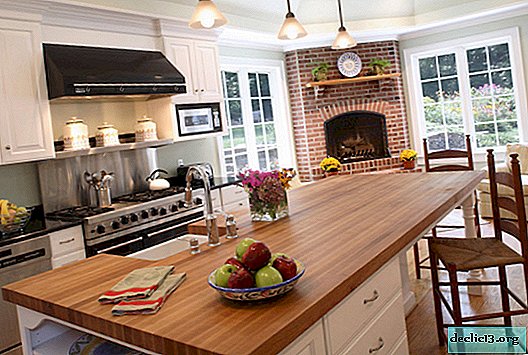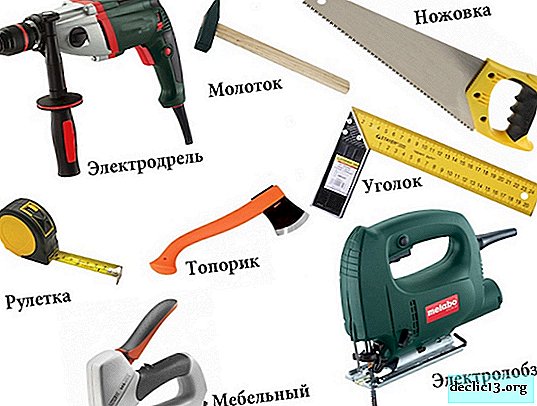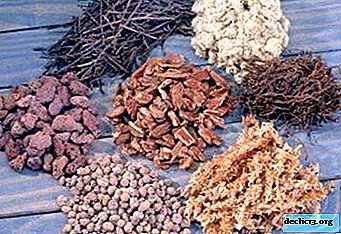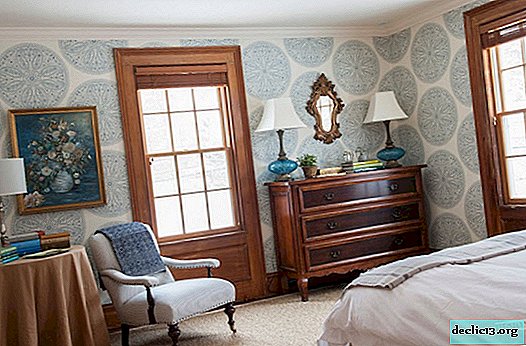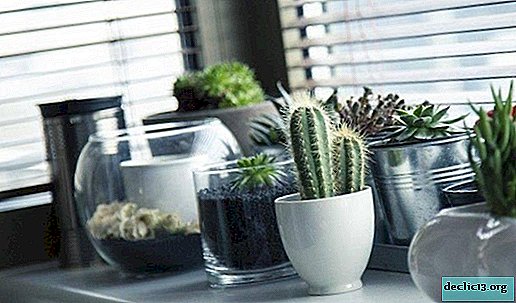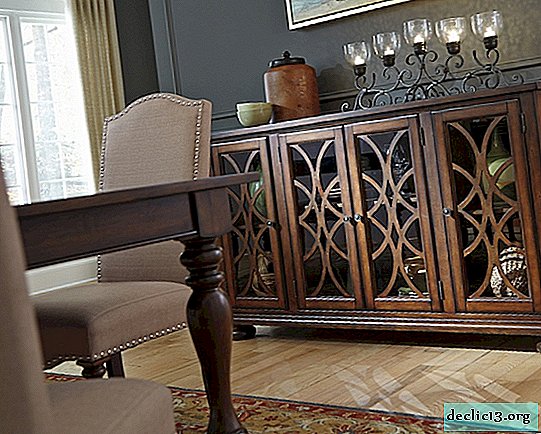A thousand ideas for decorating a kitchen apron
A kitchen apron is always in sight, this is a noticeable and important part of the image of any kitchen. But among other things, it is also a very loaded surface. The space above the work surfaces is subject to temperature changes, constant exposure to moisture and not only drops of water, but also hot fat. That is why it is necessary to approach the selection of material for the design of a kitchen apron with special care and spend no less time than when choosing a suitable option for the facades of a kitchen unit or raw materials for the manufacture of countertops.

Currently, there are many options for finishing materials for difficult surfaces such as the wall above the working area of the kitchen. Obviously, these should be non-marking materials that are easy to care for, use chemical cleaners when cleaning, they must be resistant to moisture, high temperatures. Of course, the way to design an apron should not violate the style harmony of the kitchen space and please the owners of the kitchen with their appearance.


Before considering options for finishing materials for your apron, decide whether you want it to be an accent element and attract all eyes or do you need the surface above the work areas to blend in with the overall color scheme? Do you want to make a company stone or wooden countertops from the same material or want to save on finishing an apron? For what period of time (at least tentatively) will the repair of the kitchen as a whole and the design of the apron in particular be calculated? When you have an idea of what kind of kitchen apron you want to get in the end, comparing this knowledge with the budget for repairs, you can easily make the right decision. We hope that specific examples of apron design in modern kitchens will help and inspire you in this.

Of modern materials, virtually all of these requirements, one way or another, are met by the following:
- ceramic tile;
- mosaic;
- stone (natural or artificial;
- MDF panels;
- tempered glass;
- metal (steel, bronze, aluminum, brass, iron).

But we will consider each material for designing the surface of the apron separately, we will deal with the pros and cons, which, of course, each option has.

Ceramic tile for lining the kitchen apron
It can be safely stated that ceramic tile (tile, ceramic) is a market leader in materials for facing not only kitchen surfaces, but also any other utilitarian premises of our homes. Every homeowner who at least once faced with the need to repair the kitchen and bathroom knows very well that to obtain a beautiful, practical and inexpensive cladding of any planes, you can safely purchase ceramic tiles.

The advantages of using ceramics for decorating kitchen walls:
- high level of practicality and durability. Ceramic tile is not afraid of moisture and temperature changes, practically does not fade for many years and retains the look that was when purchased;
- simplicity in operation. Fresh spots are easily washed with a wet sponge, obsolete dirt will be cleaned with detergents;
- versatility in terms of harmonious integration into any style of the kitchen interior. All thanks to the variety of colors and textures, sizes and shapes of the currently available assortment of this finishing material. The tile can be monophonic and color, with a pattern, ornament and prints. The material can be produced in a matte or glossy form, with a smooth or textured surface. Tiles can effectively imitate stone or wood texture and fit perfectly into the interior of any style, starting with country-style and ending with modern manifestations of hi-tech or loft;
- affordable cost. The range of modern stores provides a selection of ceramic tiles designed for different income levels of homeowners, and everyone can find a suitable option. In addition, in many kitchens, the height and length of the kitchen apron are small and a small amount of tile is needed to finish it. In this case, you can not save and choose the suitable option not only for cost, but also for appearance and quality of performance.


Thanks to all these qualities, most of our compatriots, without hesitation, choose ceramic tiles for facing the kitchen apron, without even considering alternative options. Minor flaws are not at all confused by most homeowners who decide to transform the kitchen with a minor renovation or start a full renovation.


And the disadvantages of the tile as the finishing material are as follows:
- complexity of installation. Agree that for a correct, beautiful and durable ceramic tile apron lining, you need considerable experience in this area. As a result, the need to turn to specialists whose services are very expensive;
- high pollution of a sufficiently large area of the kitchen space during installation.





Porcelain has long ceased to be a finishing material only for flooring and switched to facing vertical planes. In addition to its enhanced qualities of durability and strength, porcelain stoneware is mounted faster due to the large sizes of the casts (although there will be more waste when designing complex surfaces with sockets and other openings).






Tile "metro" - one of the most popular types of ceramic tiles used to decorate the vertical surfaces of the kitchen. Snow-white tiles with a matte or glossy surface, combined with grout of the same shade or contrasting, dark color, has long become an invariable participant in kitchen designs and is not going to lose ground. The fact is that this type of tile lining is perfectly integrated into almost any interior of a kitchen.

Clinker tiles are usually available in unglazed form. Due to the special technological method of tile production (extrusion), it acquires high technical characteristics, as its firing occurs at very high temperatures. Outwardly, the tile looks matte, its surface is smooth. Clinker calmly tolerates moisture and high temperatures, chemical cleaners and is incredibly easy to clean. Looks great in classic interiors or country-style kitchens.
Mosaic for facing the kitchen apron
If you need a practical, but at the same time bright and dynamic design of the apron, then mosaic can be an ideal option for cladding. Especially if the surface of the apron is quite complex, provides for niches or rounding.

Advantages of mosaic tiles:
- mosaic tiles have in their arsenal weight pluses that are peculiar to tiles, except for low cost;
- in addition, the mosaic has the unique ability to finish the material for facing difficult in terms of geometry surfaces - niches, arches, roundings, recesses;
- great for decorating the apron's perimeter or highlighting certain parts of it;
- visual expansion of the room. Mosaic tiles are recommended for facing surfaces in small kitchens, which is very important for our compatriots, who got the "Stalin" and "Khrushchev".

Among the shortcomings of the mosaic facing of the apron can be identified:
- more than the cost of a simple ceramic tile;
- a large number of seams between the chips - individual elements of the mosaic, and as a result - special care for them, treatment with moisture-resistant grout, cleansing, refreshing the appearance of approximately every 2-3 years;
- as with ceramic tiles, for the installation of mosaics, you must resort to the services of professional tilers.




The combination of tiles in the design of the apron
An interesting effect can be achieved by combining ceramic and mosaic tiles when facing surfaces above the working area of the kitchen. Such an interior will be unforgettable and individual. In terms of cost, the design will not differ much from that in which only tile is used (after all, mosaics are needed a little), and the visual effect compensates for the time and effort.


MDF boards for surface decoration over the working area of the kitchen
The fastest and cheapest way to design an apron in the kitchen is to install MDF boards with PVC film.

In addition to the low cost of MDF boards, they have a number of advantages:
- fast production. As a rule, manufacturers of kitchen sets take on the process of manufacturing an apron from MDF according to your size;
- quick installation. The same company that manufactured and assembled a set of kitchen cabinets is also engaged in the installation of MDF boards;
- the ability to replace MDF sheets even without removing kitchen cabinets and changing the stop of the kitchen at any time;
- the absence of connecting seams, which greatly facilitates the care of the surface of the apron;
- the ability to create a drawing, photo printing, any ornament without restrictions on the MDF panels.

Among the minuses of MDF panels with PVC film are the following:
- low strength. MDF is significantly inferior in strength to ceramics, glass, stone and metal;
- unproven environmental friendliness. For a long time, manufacturers of MDF panels have been arguing in favor of the environmental friendliness of this finishing material, while environmentalists, in contrast, have put forward their evidence of the harm to humans and the environment of certain substances involved in the manufacturing process of modern facing material.





Glass after tempering is an excellent option for decorating an apron
A beautiful and durable way of decorating surfaces above the working area of the kitchen space is glass lining. Typically, tempered glass is used in two possible ways - a painted surface or with photo printing. Modern technologies allow you to transfer any image to the glass plane - from a family portrait to the words of your favorite song that you sing while preparing a family dinner.
Also, glass has the following advantages:
- all the advantages of popular finishing materials (practicality, ease of care; resistance to high temperature, quiet transfer of high humidity);
- ease of installation;
- seamlessness;
- high level of strength and durability (and yet throwing a cast-iron cauldron into a kitchen apron made of glass is not worth it).

Among the obvious disadvantages, it is worth noting, first of all, the high cost. But it can also be amortized over a couple of years of operation of the glass coating to decorate part of the kitchen wall.


Natural stone for a noble finish on a kitchen apron
Most often, natural stone is used for cladding an apron, which is called "complete with countertop." For surface cladding over work areas, strong stone types are most often used - marble, granite and basalt. Granite can be called the leader in popularity among natural materials. The fact is that it has high strength with low porosity, which means that moisture, and with it dirt, penetrate the stone structure much less. For marble, for example, this cannot be said. But with a fairly frequent grinding, such an effect can be achieved. But the appearance of a marble countertop in the company of the same apron will please you for many years and will be able to serve more than one generation of the family.

Recently, such material as lithoceramics has become popular - it is a composite of marble and tile. Outwardly, only specialists are able to distinguish natural stone from synthetic “alloy”, but the tiles obtained as a result of merging are much easier than marble, they are easier to assemble, and they are certainly cheaper than natural stone.



Marble "subway" tiles of the same breed with tabletop material create an elegant and noble alliance that can decorate both the kitchen in a classic style, with a traditional decor, and the modern style of the kitchen interior.


Metal apron for a modern kitchen
Just want to note that an apron made of stainless steel or iron does not harmoniously fit into any interior style. For example, for baroque, rococo and even classics, it is better to choose traditionally ceramic finishes. But the modern style, high-tech and loft are in perfect harmony with the brilliance of stainless steel.

When creating an interior in which there will be a metal apron, it is important to remember the environment necessary for it - use mirrored surfaces or the luster of glass and crystal. In any case, most models of household appliances for the kitchen are either made of stainless steel or have chrome fittings.


Using metal to decorate a kitchen apron, you should be prepared for the fact that any drops, even from clean water, will be visible on your surface of their steel or iron. This type of lining is not desirable for housewives who elevate the cleanliness of their kitchen to absolute.


If it seems to you that the use of a single piece of metal can add excessive coldness to the interior of the kitchen, then you can consider the option of a metal tile or mosaic.
Natural wood for wall decoration over work surfaces
To begin with, uncoated wood for decorating an apron is an extremely undesirable option. The tree absorbs moisture well, and with it dirt, it has a very porous, fibrous structure, we absorb all the smells. Therefore, if the interior of your kitchen requires a wood apron, take care of the necessary protection of the wooden surface. Obviously, such a finish from natural material will cost a lot. But when installing the dirt will be a little, and you can be sure of the environmental friendliness of the chosen method of lining the planes of your kitchen. But you also need to be prepared for the fact that approximately once a year you will need to treat the wooden surface with special oils that prevent drying of the material (after all, humidity and subsequent swelling of the wood in the kitchen are inevitable).




Brick wall as a way to design a kitchen apron
If your kitchen is made in the loft style and you would like to emphasize the room's belonging to this style with the help of an apron, then the best option would be to use brickwork or its imitation. Of course, the surface of the bricks and the joints between them must be opened with special moisture-resistant varnishes to protect the apron from constant exposure to moisture, dirt and drops of fat.




